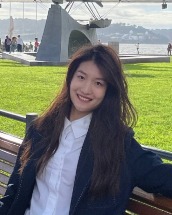High spatial resolution analysis of transgression of freshwater planetary boundary in the context of globalization l Siyu Hou

Field l Discipline
-
Water
-
Multidisciplinary Environmental Sciences
-
Sustainable development
Expertise
-
Freshwater planetary boundary assessment
-
Sustainability assessment
-
Input-output analysis
Summary
Water crises have been recognized as the most influential risks in terms of societal and environmental impact. To prevent unacceptable environmental change generated by water crises, planetary boundary for freshwater use (PBW) was proposed as one of the nine planetary boundaries. Planetary boundaries define thresholds for different subsystems of Earth, crossing which would incur potential disastrous catastrophe to human beings.
Existing studies indicated that freshwater use has exceeded its availability and caused environmental impact in many river basins. Typically, the PBW transgression occurs in India, China, the Middle East and North Africa. Attributing all environmental pressures within above countries to themselves could be biased, as over 10% of water use in these countries is embodied in products for export, mostly to developed countries. This raises the question of how to clarify and allocate the responsibility of each country for excess water use? Answering this question will help national policymakers to spatial-explicitly control over-utilization of water resources from both local and global perspectives.
Research questions will be addressed in this study as following:
-
How to identify hotspots of competition for water between the ecosystem and human demand?
-
How to measure the impact of consumption on driving the regional exceedance of PBW?
How to allocate the responsibility for the PBW exceedance between producers and consumers considering regional differences of water endowment and water use efficiency?
Supervision by
-
Promotor: Prof. dr. K.S. (Klaus) Hubacek | Integrated Research on Energy, Environment and Society - IREES | ESRIG, University of Groningen.
-
Co-promotor: Dr. Y. (Yuli) Shan | Integrated Research on Energy, Environment and Society - IREES | ESRIG, University of Groningen.
More information and contact details can be found on the personal profile of Siyu-Hou
| Last modified: | 11 April 2023 09.48 a.m. |
